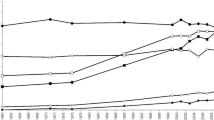Abstract
Growing evidence suggests that complex gene and environment interactions underlie a number of diseases including chronic inflammatory diseases of the digestive system. The rapid advances in information and technology provide opportunities to discover the risks or etiology for a variety of disorders within individual patients. However, the availability of new data and new technology has outstripped the conceptual framework of simple disorders and challenges current statistical approaches. Here we address the issues surrounding study design and sample size for complex genetic traits, with special attention to meta-analysis and systems biology. We conclude that meta-analysis should play a limited role in evaluating studies of complex genetic diseases. Instead, systems biology-based approaches should be developed to integrate multiple, focused, and mechanistic association studies with the goal of assisting in the risk assessment of patients on a person-by-person basis.
Similar content being viewed by others
References
Ioannidis JP, Ntzani EE, Trikalinos TA, Contopoulos-Ioannidis DG: Replication validity of genetic association studies. Nat Genet 29(3):306–309, 2001
Ioannidis JP, Trikalinos TA, Ntzani EE, Contopoulos-Ioannidis DG: Genetic associations in large versus small studies: an empirical assessment. Lancet 361(9357):567–571, 2003
Trikalinos TA, Ntzani EE, Contopoulos-Ioannidis DG, Ioannidis JP: Establishment of genetic associations for complex diseases is independent of early study findings. Eur J Hum Genet 12(9):762–769, 2004
Ioannidis JP: Genetic associations: False or true? Trends Mol Med 9(4):135–138, 2003
Wacholder S, Chanock S, Garcia-Closas M, El Ghormli L, Rothman N: Assessing the probability that a positive report is false: an approach for molecular epidemiology studies. J Natl Cancer Inst 96(6):434–442, 2004
Schneider A, Barmada MM, Slivka A, Martin JA, Whitcomb DC: Clinical characterization of patients with idiopathic chronic pancreatitis and SPINK1 Mutations. Scand J Gastroenterol 39(9):903–904, 2004
Whitcomb DC: Advances in understanding the mechanisms leading to chronic pancreatitis. Nat Clin Practice, Gastro Hepatol 1(1):46–52, 2004
Whitcomb DC: Value of genetic testing in management of pancreatitis. Gut 53(11):1710–7, 2004
Clermont G, Bartels J, Kumar R, Constantine G, Vodovotz Y, Chow C: In silico design of clinical trials: a method coming of age. Crit Care Med 32(10):2061–2070, 2004
Author information
Authors and Affiliations
Corresponding author
Additional information
Some of this work was presented by Professor Whitcomb in an invited lecture entitled “Polygenic Traits in Pancreatic Disorders,” at the 5th International Symposium on Inherited Diseases of the Pancreas, Graz, Austria, July 9, 2005. This work was supported in part by NIH Grants DK61451 (D.C.W.) and DK054709 (D.C.W.) and by the Wayne Fusaro Pancreatic Cancer Research Fund (D.C.W.).
Rights and permissions
About this article
Cite this article
Whitcomb, D.C., Aoun, E., Vodovotz, Y. et al. Evaluating Disorders with a Complex Genetics Basis. The Future Roles of Meta-analysis and Systems Biology. Dig Dis Sci 50, 2195–2202 (2005). https://doi.org/10.1007/s10620-005-3033-7
Received:
Accepted:
Issue Date:
DOI: https://doi.org/10.1007/s10620-005-3033-7




